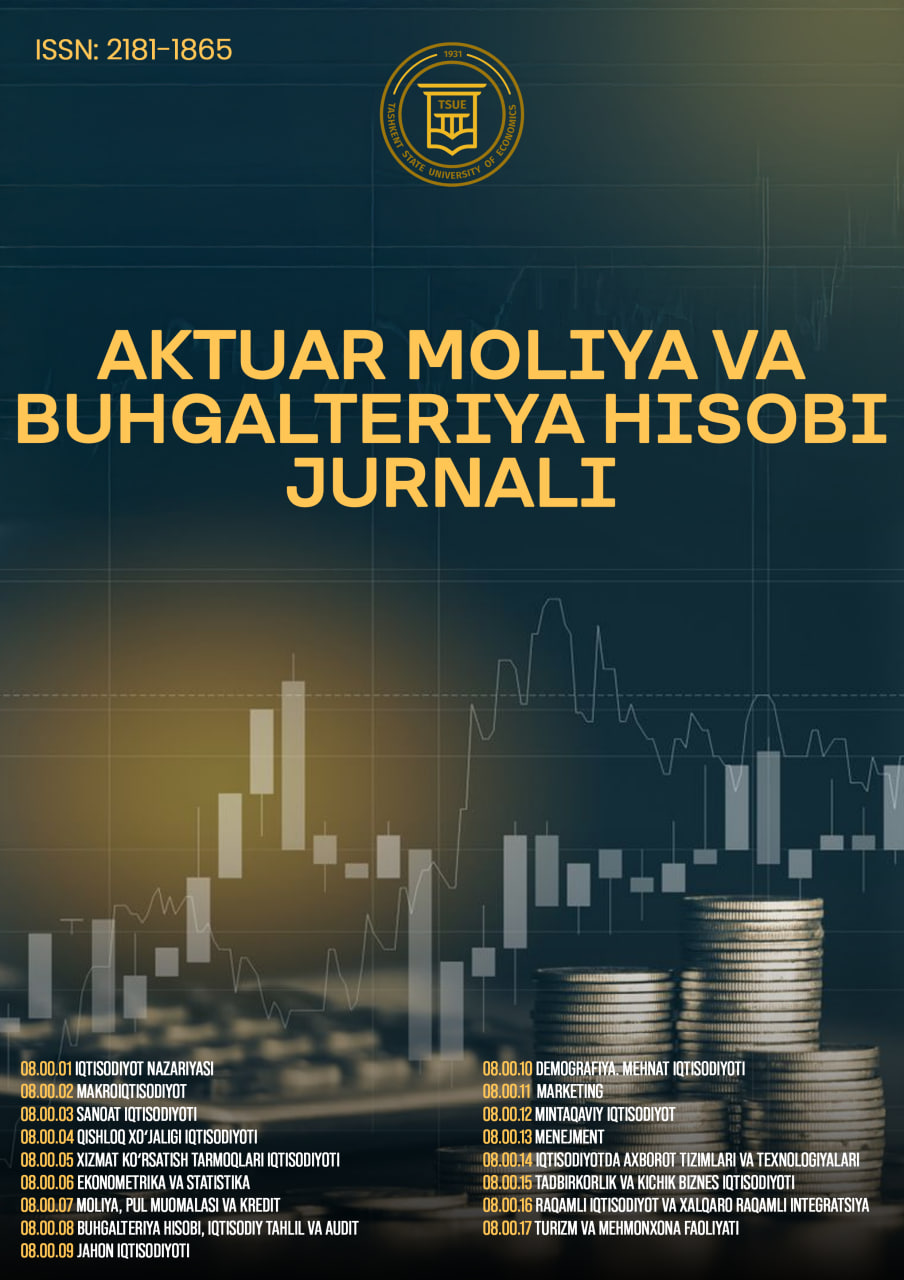INTEGRATING DUAL EDUCATION MODELS INTO NATIONAL TOURISM AND HOSPITALITY CURRICULA: OPPORTUNITIES AND CHALLENGES
Keywords:
dual education, tourism curriculum, hospitality management, experiential learning, vocational training, employability, industry collaboration, higher education reform, Uzbekistan, tourism workforce.Abstract
The current trends of rapid development in the global tourism and hospitality industry determine the necessity of shifting towards more practical and competency-based education models. This research examines the feasibility of integrating the dual education systems into the national curricula on tourism and hospitality. The study discovers the existing gap between the academic learning outcomes and the industry requirements, which is relevant to developed countries, such as Uzbekistan, where the local government views tourism as a priority economic industry. The research is based on the qualitative-descriptive method, which implies the analysis of curricula, interviews with educators and industry specialists as well as the comparative examination of dual education models implemented in the tourism industry of European countries. The research outcomes indicated that dual education improves the employability of the graduates and enhances their professional skills and competencies making them more appropriate for the industry. At the same time, due to structural constraints, the lack of university-insustry partnership and sufficient regulation results in the failure of the system’s implementation, implying a number of barriers to the sustainable integration. The research proves that for effective tourism education transformation, the system requires the university, government, and industry support of dual education policy beneficial initiatives, the industry-oriented transformation in curriculum and close collaboration networks. The theoretical implications suggest for understanding the complexity of the field through the analysis of conceptual frameworks regarding human capital and application of the theoretical insights to the development of the superstructure of renewed tourism education system.References
D. Kolb, Experiential Learning: Experience as the Source of Learning and Development. Englewood Cliffs, NJ: Prentice-Hall, 1984.
G. S. Becker, Human Capital: A Theoretical and Empirical Analysis, with Special Reference to Education. Chicago, IL: University of Chicago Press, 1993.
M. Baum and A. Szivas, “HRD in tourism: A role for government?,” Tourism Management, vol. 29, no. 4, pp. 783–794, 2008.
R. Airey and D. Tribe, An International Handbook of Tourism Education. Oxford: Elsevier, 2005.
H. Schierenbeck, “Dual education and training systems in Germany: Success factors and challenges for transfer,” International Review of Education, vol. 62, no. 3, pp. 309–324, 2016.
A. B. Mihalič, “Developing sustainable tourism through education: The dual education model in hospitality,” Journal of Tourism Futures, vol. 7, no. 1, pp. 50–65, 2021.
A. Cooper and C. Shepherd, “Implementing experiential learning in tourism and hospitality education: Opportunities and barriers,” Journal of Teaching in Travel & Tourism, vol. 17, no. 3, pp. 183–198, 2017.
T. Baum, “Skills and training for the hospitality sector: A review of issues,” International Journal of Contemporary Hospitality Management, vol. 27, no. 6, pp. 845–865, 2015.
A. Jenkins, “Work-based learning in higher education: The dual system model revisited,” Higher Education Quarterly, vol. 74, no. 2, pp. 123–140, 2020.
A. Zaitseva, E. Goncharova, and N. Androsenko, “The dual education system in tourism: Problems and prospects of implementation in higher education,” Mediterranean Journal of Social Sciences, vol. 7, no. 1, pp. 291–297, 2016.
J. Richardson and S. Kahtani, “Hospitality graduates’ employability: Evidence from industry and academia,” Education + Training, vol. 63, no. 5, pp. 654–671, 2021.
J. R. Brent and S. U. Aliyeva, “Integrating competency-based models in hospitality curricula: The case of Central Asia,” Journal of Hospitality and Tourism Education, vol. 34, no. 3, pp. 233–244, 2022.
UNWTO, Tourism Education and Training Series: Human Resource Development in Tourism. Madrid: United Nations World Tourism Organization, 2020.
A. Shadiev, “Higher education transformation in Uzbekistan: Challenges and perspectives,” Central Asian Journal of Education Research, vol. 9, no. 2, pp. 112–128, 2023.
E. Marakova and J. Medvedova, “Cooperation between universities and tourism enterprises in the dual education process,” Journal of Tourism and Services, vol. 22, no. 12, pp. 25–41, 2021.


